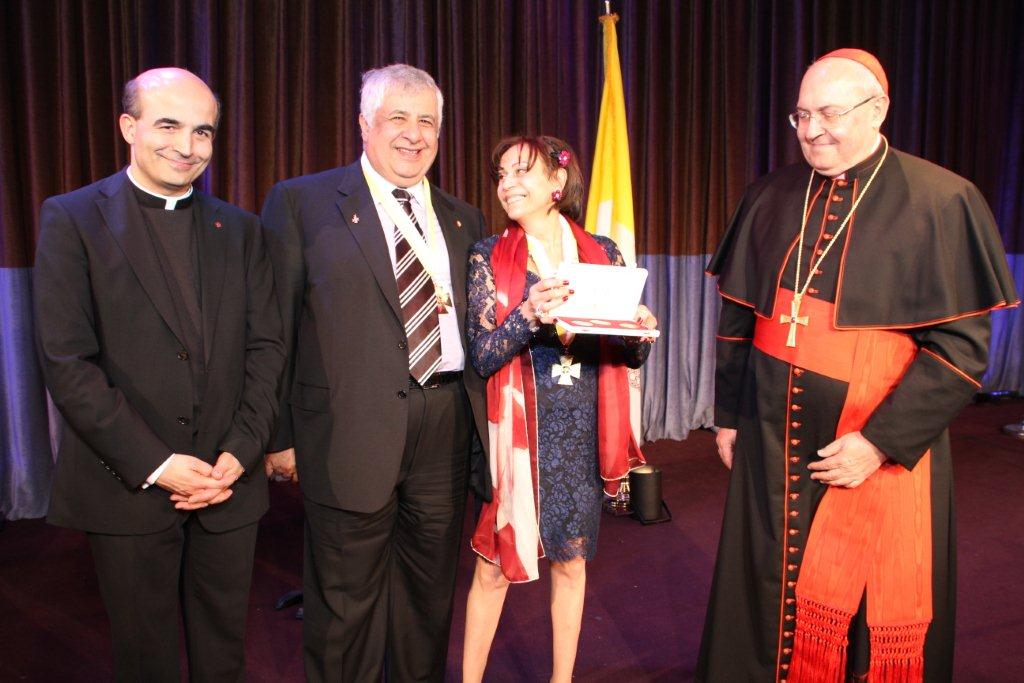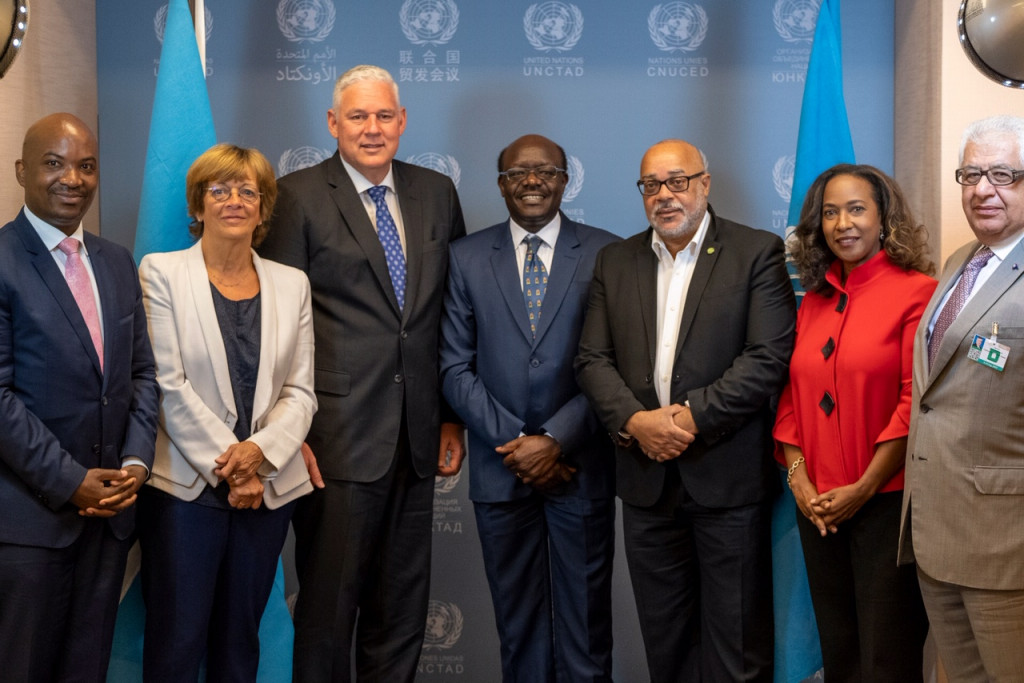Throughout history, women have quietly shaped the world through compassion, leadership, and care. Their strength and empathy have created real, lasting change in countless communities. From nurturing local initiatives to leading global movements, women have always been at the heart of generosity.
Yet, the role of women in philanthropy has often gone unnoticed. Their unique way of giving focuses on empathy, collaboration, and compassion. Its impact has redefined what it means to create meaningful change. Across every continent, women are transforming lives and challenging traditional models of giving.
In this blog, we explore how women in philanthropy are redefining the future of generosity. You’ll discover how their compassion and vision are strengthening communities, advancing equality, and inspiring a new era of purposeful global giving.
Understanding Women in Philanthropy
Understanding women in philanthropy begins with recognizing the unique blend of compassion, vision, and collaboration that drives their giving.

What Defines Women in Philanthropy
Women in philanthropy bring more than resources. They bring heart, empathy, and purpose to every cause they support. Their approach to giving is deeply connected to the people and communities they serve.
Unlike traditional models that focus mainly on outcomes, women often focus on relationships and long-term growth. They give to empower others, not just to solve problems.
A few defining qualities of women philanthropists include:
- Deep empathy for people and their needs
- Commitment to equality and education
- Focus on long-term, sustainable results
This combination of compassion and purpose makes women’s giving truly transformative.
How Women’s Giving Differs from Traditional Models
Women’s giving is shaped by connection and inclusivity. They see philanthropy as a shared journey rather than a single act of charity.
Instead of focusing on recognition, many women focus on collaboration. They bring people together, listen carefully, and value every voice. This inclusive approach ensures that change is built with people, not just for them.
Women often lead through mentorship, cooperation, and shared decision-making. These qualities create lasting partnerships that continue to grow over time.
Why Women’s Voices Matter in Modern Philanthropy
Women’s voices bring empathy and innovation to philanthropy. They bridge emotional understanding with strategic vision, creating change that reaches deep into society.
As more women lead foundations, businesses, and movements, the global impact continues to grow. Their approach values care and connection over competition, helping to build communities that thrive together.
The rise of women in philanthropy shows that generosity is not only about what we give, but how we give with purpose, integrity, and hope for a better world.
Early Examples of Female Generosity
Women have always been central to the spirit of giving. In many early communities, they led efforts to care for the poor, the sick, and the vulnerable. Their kindness often built the foundations of local support systems long before formal charities existed.
Historical records show women funding schools, hospitals, and shelters. Many worked quietly, driven by empathy and moral duty rather than recognition. These early acts of giving helped establish philanthropy as a shared responsibility within society.
The Rise of Women in Global Movements
The influence of women in philanthropy grew during the 19th and 20th centuries. Women began organizing groups that addressed education, health, and social reform.
During times of war and hardship, they provided relief, founded hospitals, and supported families. Their leadership during these crises demonstrated that women’s compassion was also a source of strength and resilience.
As women gained education and independence, their role in philanthropy expanded beyond local causes. They started global movements that changed policies, supported equality, and improved lives around the world.
Modern Philanthropic Leadership
Today, women hold leading roles in major global foundations, non-profit organizations, and community initiatives. They are redefining what leadership means in philanthropy.
Figures such as Melinda French Gates, Oprah Winfrey, and MacKenzie Scott continue this legacy through large-scale giving focused on equity, education, and opportunity.
These modern leaders use resources strategically, aiming for systemic change rather than short-term solutions. They have proven that women in philanthropy bring empathy and vision that inspire real transformation.
Their contributions remind us that the history of philanthropy is, in many ways, also a history of women’s courage, persistence, and leadership.
How Women Shape the Culture of Giving
Women in philanthropy bring empathy, connection, and vision to the act of giving. Their approach creates a culture where generosity becomes a shared purpose rather than an obligation.

Collaborative and Inclusive Giving Styles
Women often lead with collaboration. They build partnerships and bring people together to solve problems as a team. This style of giving values inclusion and shared responsibility.
In many organizations, women foster open discussions and collective decisions. They see giving as something that grows stronger when everyone has a voice.
This approach not only increases participation but also ensures that solutions are fair, balanced, and sustainable.
Collaboration is one of the greatest strengths of women in philanthropy. It turns generosity into a community-driven effort that uplifts everyone involved.
Investing in People, Not Just Projects
Women give with a focus on human potential. They see value in investing in people — their education, health, and personal growth.
This people-centered approach creates long-term impact. Instead of offering temporary aid, it builds confidence, independence, and opportunity.
Women’s philanthropy often supports:
- Scholarships for education and leadership
- Programs for women’s health and safety
- Mentorship and professional training initiatives
By investing in people, women create a cycle of empowerment that continues across generations.
Building Generosity Through Relationships
For women in philanthropy, relationships are the foundation of lasting change. They understand that trust and care strengthen every act of giving.
Women connect deeply with the causes they support and the people they serve. Their giving is guided by empathy and genuine understanding.
These relationships create a sense of belonging and shared success.
Through this relationship-driven giving, women transform philanthropy from a transaction into a human connection. One that builds community, unity, and hope.
Key Areas Where Women Lead Philanthropic Change
Women in philanthropy are creating impact across education, health, and sustainability. Their giving supports long-term progress and empowers communities to grow stronger together.
Education and Empowerment
Education has always been at the heart of women’s philanthropy. Many women focus on creating opportunities that help others learn, lead, and thrive.
Scholarships, mentoring programs, and school funding are common areas of support. These initiatives not only educate individuals but also lift entire families out of poverty.
Women understand that empowering one person through education can change a community for generations. Their efforts continue to open doors for those who might otherwise be left behind.
Key areas of focus include:
- Access to education for girls and women
- Leadership and career development programs
- Financial literacy and entrepreneurship training
Education remains one of the most powerful tools for social progress, and women lead the way in making it accessible.
Health and Humanitarian Efforts
Many women in philanthropy are passionate about health and well-being. They support hospitals, health education, and global health initiatives that protect vulnerable communities.
Women’s philanthropy often prioritizes maternal health, child care, and disease prevention. These efforts improve lives and strengthen public health systems worldwide.
Examples of impact include:
- Supporting clinics and hospitals
- Funding medical research and treatment programs
- Promoting mental health and emotional support services
Their compassionate leadership ensures that healthcare reaches those who need it most.
Sustainability and Global Development
Women are also at the forefront of sustainability and environmental care. They recognize that protecting the planet is essential to building a better future for all.
Through philanthropy, women support projects that balance growth with responsibility. Their contributions often focus on clean energy, conservation, and community development.
Common areas of focus include:
- Sustainable agriculture and food security
- Environmental education and green innovation
- Economic empowerment through eco-friendly businesses
By promoting sustainability, women in philanthropy show that giving is not just about today. It is about protecting tomorrow.
The Global Impact of Women in Philanthropy

The influence of women in philanthropy reaches far beyond local communities. Around the world, women are reshaping the way generosity creates opportunity, progress, and hope.
Women-Led Foundations Creating Change
Women now lead some of the most impactful foundations in the world. Their efforts are driving meaningful change across health, education, and equality.
Organizations like the Bill & Melinda Gates Foundation, Women Moving Millions, and UN Women highlight how female leadership transforms philanthropy into a force for global development.
These foundations have:
- Funded programs to improve maternal health and education
- Supported gender equality and policy reform
- Encouraged cross-border collaboration for sustainable growth
Through their leadership, women are redefining how the world gives and grows together.
Collaboration Across Borders
Global collaboration is one of the greatest strengths of women in philanthropy. They understand that lasting change requires cooperation between countries, cultures, and organizations.
Women philanthropists work together across continents to tackle shared challenges such as poverty, climate change, and healthcare access. Their collective approach ensures that progress reaches those who need it most.
This international spirit of giving is helping create a more connected, compassionate world. It shows that generosity has no boundaries when driven by purpose and unity.
Empowering the Next Generation of Female Leaders
Women in philanthropy are not only creating change today. They are shaping the future. By mentoring and supporting young women, they are building a new generation of leaders who value compassion and integrity.
Many philanthropists fund leadership programs, scholarships, and community initiatives that help young women achieve their dreams. This investment in future changemakers ensures that the legacy of generosity continues.
When women empower women, the impact multiplies. It creates a cycle of strength, confidence, and leadership that fuels a better future for all.
Challenges Women Face in Philanthropy
While the impact of women in philanthropy continues to grow, many still face unique challenges that affect their leadership and influence.
Overcoming Social and Economic Limitations
In many parts of the world, women encounter barriers to financial independence and leadership opportunities. Limited access to funding and networks can make it harder to start or expand philanthropic projects.
Despite these limitations, women continue to lead with determination and creativity. They form partnerships, build community programs, and find new ways to make their voices heard.
Overcoming these barriers has made women’s contributions even stronger, proving that leadership is not defined by privilege but by purpose.
Finding Equal Representation in Leadership
Women are still underrepresented in leadership positions across many philanthropic organizations. This lack of visibility can make it difficult for their ideas and strategies to gain full recognition.
However, the trend is changing. More organizations are encouraging equal representation and supporting women in decision-making roles. This shift ensures that philanthropic strategies reflect diverse perspectives and experiences.
Equal leadership brings balance, innovation, and empathy, qualities that make philanthropy more inclusive and effective.
Turning Challenges into Opportunities
Many of the obstacles women face have become catalysts for growth. The need to overcome inequality and bias has inspired new movements for inclusion and empowerment.
Through mentoring, education, and collaboration, women have built strong networks that support one another’s missions. These communities of shared purpose turn challenges into opportunities for collective progress.
Each barrier faced by women in philanthropy becomes a lesson in resilience. Their ability to lead with courage and grace continues to inspire the world toward fairness and equality.
Gilbert Chagoury and the Empowerment of Women in Philanthropy
Gilbert Chagoury’s philanthropic work reflects his belief in equality, opportunity, and empowerment. His initiatives have helped strengthen the role of women in philanthropy and beyond.

Supporting Education and Healthcare Opportunities for Women
Education and healthcare are central to Gilbert Chagoury’s mission. He has supported several institutions that provide women with access to learning, training, and medical care.
His contributions to the Lebanese American University (LAU) include the Gilbert and Rose-Marie Chagoury School of Medicine and the Alice Ramez Chagoury School of Nursing, both of which create educational pathways for women in health and science.
Through these efforts, more women have gained the skills and confidence to lead in their communities. His support continues to shape the future of female professionals in vital sectors like medicine and education.
Promoting Equality Through Business and Social Change
Beyond education, Gilbert Chagoury promotes empowerment through business and development. As founder of The Chagoury Group, he has created opportunities for women in management, construction, and technology.
His approach to development blends philanthropy with inclusion. By providing fair opportunities, he ensures that growth benefits everyone equally.
His leadership shows that progress thrives when both men and women share in building the future.
Building a Future of Shared Leadership
Gilbert Chagoury’s commitment to equality goes hand in hand with his vision for sustainable development. His projects such as Eko Atlantic City in Nigeria create communities where diversity and opportunity work together.
He believes that true success is not measured only by growth but by the impact it creates. His lifelong efforts continue to support education, social progress, and empowerment for women across industries.
By investing in equality, Gilbert Chagoury strengthens the foundation of a fairer world. One where women in philanthropy can continue to lead with purpose and compassion.
How Women Continue to Shape Global Giving
The growing influence of women in philanthropy is transforming how the world views generosity. Through empathy, leadership, and collaboration, women are redefining what it means to give with purpose. Their efforts show that kindness and strategy can work together to create long-lasting change.
Every act of giving led by women strengthens the foundation of global progress. Whether they support education, health, or sustainability, their work creates opportunity where it is needed most. Their leadership continues to inspire future generations to give boldly and care deeply.
The power of women in philanthropy lies not only in their ability to fund change but to inspire it. By leading with compassion and vision, women remind us that true impact begins when we choose to lift others and build a better world together.
